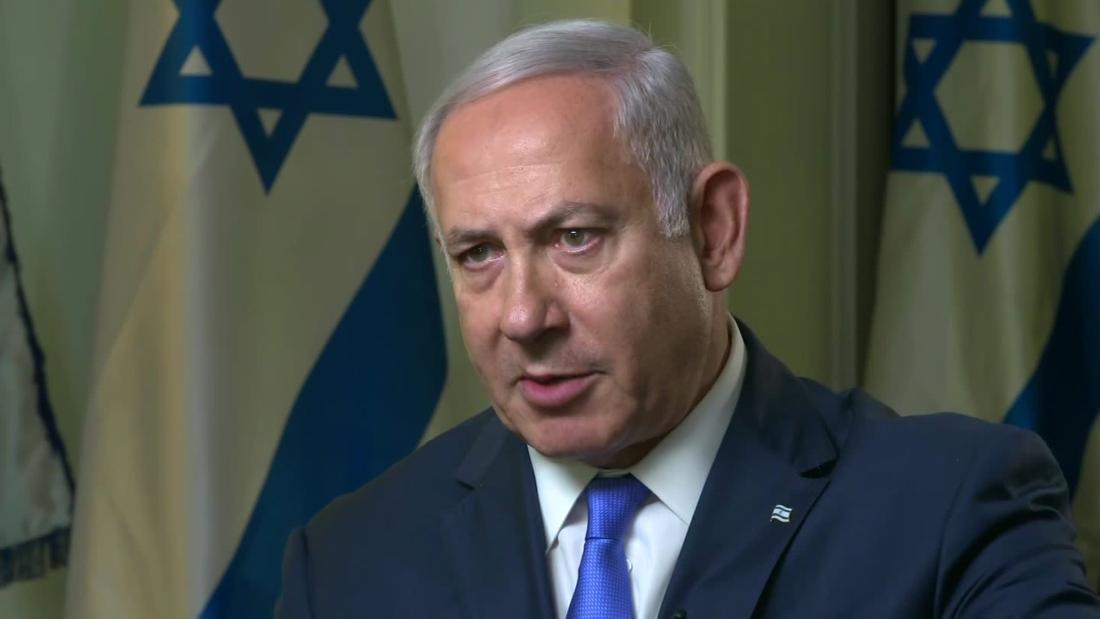
[ad_1]
The unannounced visit — the first by an Israeli leader to Oman in more than 20 years — is the clearest sign yet of the warming relations between Israel and the Arab states. Oman and Israel do not have diplomatic relations, but that didn’t get in the way of the meeting.
One day after the meeting, Oman’s Minister of Foreign Affairs, Yousuf bin Alawi bin Abdullah, said, according to Reuters: “Israel is a state present in the region, and we all understand this. The world is also aware of this fact. Maybe it is time for Israel to be treated the same [as other states] and also bear the same obligations.”
Bin Alawi, speaking at a summit in Bahrain attended by US Defense Secretary Jim Mattis, said Oman was willing to contribute ideas to the Israeli-Palestinian peace process while backing American efforts. Bahrain’s foreign minister backed Oman’s position.
Speaking to Cabinet colleagues after his return, Netanyahu said, “This visit comes against the background of diplomatic efforts that I have been promoting in recent years vis-à-vis the Arab countries. There will be more.”
Netanyahu’s trip is not the only sign of what appear to be significant changes between Israel and the Gulf in recent weeks. As the Israeli leader was in Oman, his sports and culture minister was in Abu Dhabi, cheering on an Israeli judo team at an international competition. Miri Regev visited the Grand Mosque in Abu Dhabi, saying in a video on social media during the visit, “The entire message that is here in this mosque is one of brotherhood and peace.”
Israeli flag, anthem in Abu Dhabi
When Israeli athletes won gold at the competition, the country’s flag was raised, and the national anthem was played, marking a big difference from one year ago, when Israeli athletes at the same competition had to compete under the generic flag of the International Judo Federation.
This week, Communications Minister Ayoob Kara is in Dubai for a telecommunications conference. Minister of Transportation and Intelligence Yisrael Katz is preparing for his own trip to Oman next week.
The recent gestures received an endorsement from US President Donald Trump’s Special Envoy, Jason Greenblatt, who said on Twitter: “In the last few days we have seen our regional partners Oman, Bahrain, and the UAE make statements and/or gestures signalling warmer ties with Israel. A more stable region leads to a stronger and more prosperous region. It is good for all.”
All of this despite a moribund Israeli-Palestinian peace process and growing animosity between Israel and the Palestinian Authority.
On Thursday, Mousa Abu Marzouk, a senior member of Hamas’ political bureau in Gaza, reproached Arab states for moving toward normalization with Israel. In a statement, Abu Marzouq denounced what he called the “wave of normalization of ties with the Israeli occupation,” noting that the Arab Peace Initiative, a peace plan presented by Saudi Arabia in 2002, stipulated that a peace agreement between Israelis and Palestinians had to come before official recognition and ties between Arab states and Israel.
In the past, Palestinian Authority President Mahmoud Abbas has hinted at growing displeasure with Gulf states like Saudi Arabia, who have grown closer to the United States and to Israel. In a defiant January speech, Abbas said, “We do not interfere with the affairs of Arab countries and we do not accept anyone interfering in our own affairs.”
The growing relations between Israel and the Gulf states have been driven by a shared animosity toward Iran and its growing influence in the region.
Though many of the Gulf states have been reluctant to openly acknowledge the change, Netanyahu has paraded it at every opportunity, especially when criticizing the Iran nuclear deal.
In his speech in September to the United Nations General Assembly, Netanyahu said: “The Iran deal has had one positive consequence, an unintended one but a positive consequence — by empowering Iran, it brought Israel and many Arab states closer together than ever before, in an intimacy and friendship that I have not seen in my lifetime and would have been unimaginable a few years ago.”